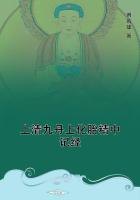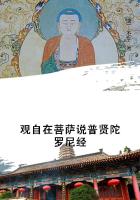'Certainly; but he was only supplying a pulpit there; now he has his own parish. He is taking up a course of child-study, and asked me if he was at liberty to use the twins for psychological observations. I assented most gratefully, thinking, you know, that he couldn't study them unless he kept them with him a good deal; but he counted without his host, as you can imagine. He lives at the hotel until his cottage is finished, and the first thing I knew he had hired a stout nursemaid as his contribution to the service of humanity. I think he was really sorry for me, for I was so confined I could scarcely ever ride, or drive, or play tennis; and besides, he simply had to have somebody to hold the children while he observed them. We succeeded better after the nurse came, and we all had delightful walks and conversations together, just a nice little family party! The hotel people called Atlantic the Cyclone, and Pacific the Warrior.
Sometimes strangers took us for the children's parents, and that was embarrassing; not that I mind being mistaken for a parent, but I decline being credited, or discredited, with the maternity of those imps!'
'They are altogether new in my experience,' confessed Mary.
'That is just what the young minister said.'
'Will he keep up his psychological investigation during the autumn?'
Mary inquired.
'He really has no material there.'
'What will he do, then?--carry it on by correspondence?'
'No, that is always unsatisfactory. I fancy he will come here occasionally: it is the most natural place, and he is especially eager to meet you.'
'Of course!' said Mistress Mary, reciting provokingly:
'"My lyre I tune, my voice I raise, But with my numbers mix my sighs, And whilst I sing Euphelia's praise I fix my soul on Chloe's eyes."'
'How delightful,' she added, 'how inspiring it is to see a young man so devoted to science, particularly to this neglected science! I shall be charmed to know more of his psychology and observe his observations.'
'He is extremely clever.'
'I have no doubt of it from what you tell me, both clever and ingenious.'
'And his cottage is lovely; it will be finished and furnished by next summer,--Queen Anne, you know.'
Now, this was so purely irrelevant that there was a wicked hint of intention about it; and though Mistress Mary was smiling (and quaking) in the very depths of her heart, she cruelly led back the conversation into safe educational channels. 'Isn't it curious,' she said, 'that we should have thought Lisa, not the twins, the impossible problem? Yet, as I have written you, her solution is something to which we can look forward with reasonable confidence.
It is scarcely eighteen months, but the work accomplished is almost incredible, even to me, and I have watched and counted every step.'
'The only explanation must be this,' said Rhoda, 'that her condition was largely the fruit of neglect and utter lack of comprehension.
The state of mind and body in which she came to us was out of all proportion to the moving cause, when we discovered it. Her mother thought she would be an imbecile, the Grubbs treated her as one, and nobody cared to find out what she really was or could be.'
'Her brain had been writ upon by the "moving finger,"' quoted Mary, 'though the writing was not graved so deep but that love and science could erase it. You remember the four lines in Omar Khayyam?
"'The moving finger writes; and, having writ, Moves on: nor all your piety nor wit Shall lure it back to cancel half a line, Nor all your tears wash out a word of it."'
'Edith says I will hardly know her,' said Rhoda.
'It is true. The new physician is a genius, and physically and outwardly she has changed more in the last three months than in the preceding year. She dresses herself neatly now, braids her own hair, and ties her ribbons prettily. Edith has kept up her gymnastics, and even taught her to row and play nine-pins. For the first time in my life, Rhoda, I can fully understand a mother's passion for a crippled, or a blind, or a defective child. I suppose it was only Lisa's desperate need that drew us to her at first. We all loved and pitied her, even at the very height of her affliction; but now she fascinates me. I know no greater pleasure than the daily miracle of her growth. She is to me the sister I never had, the child I never shall have. When we think of our success with this experiment, we must try to keep our faith in human nature, even under the trying ordeal of the twins.'
'My faith in human nature is absolutely intact,' answered Rhoda; 'the trouble is that the Warrior and the Cyclone are not altogether human.
Atlantic is the coldest creature I ever knew,--so cold that he could stand the Shadrach-Meshech-and Abednego test with impunity; Pacific is hot,--so hot-tempered that one can hardly touch her without being scorched. If I had money enough to conduct an expensive experiment, I would separate them, and educate Pacific at the North Pole, and Atlantic in the Tropics.'
'If they are not distinctly human, we must allow them a few human virtues at least,' said Mary; 'for example, their loyalty to each other. Pacific, always at war with the community, seldom hurts her brother; Atlantic, selfish and grasping with all the world, shares generously with his sister. We must remember, too, that Lisa's care has been worse than nothing for them, notwithstanding its absolute fidelity; and their dependence has been a positive injury to her.
There! she has just come into the playground with Edith. Will wonders never cease? Pacific is embracing her knees, and Atlantic allows himself to be hugged!'
Marm Lisa was indeed beside herself with joy at the meeting. She clung to the infant rebels, stroked their hair, admired their aprons, their clean hands, their new boots; and, on being smartly slapped by Atlantic for putting the elastic of his hat behind his ears, kissed his hand as if it had offered a caress. 'He's so little,' she said apologetically, looking up with wet eyes to Edith, who stood near.















